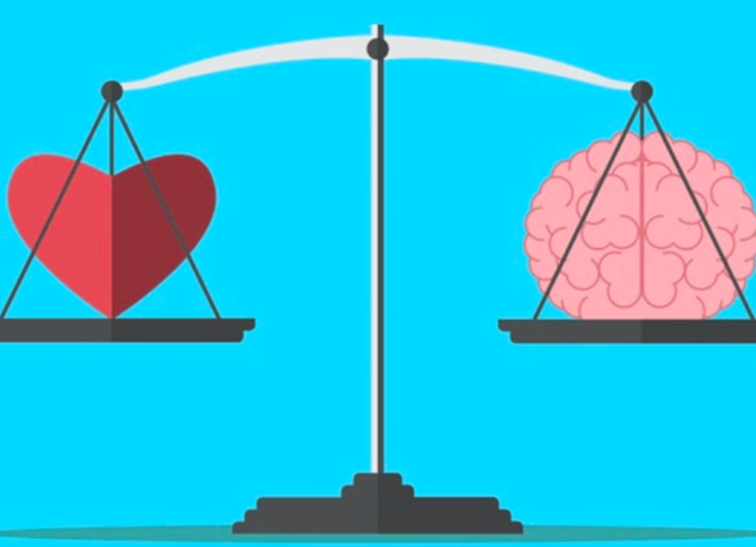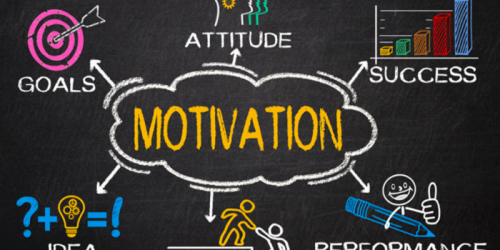Five key tips to improve your EQ

How to Improve Your EQ?
EQ (Emotional Intelligence Quotient) refers to emotional intelligence, not intellectual intelligence (IQ).
Our IQ is often expressed in academic performance, which determines which university we will enter, and which profession to choose.
But a successful life depends on the level of EQ, more than the level of IQ.
People with high EQ can manage their emotions with a constructive attitude, not only knowing themselves, but also knowing each other, and can always attract others.
EQ can be learned, and there are four basic abilities to improve EQ:
1. Have self-knowledge:
Understand how emotions affect your thoughts and behavior, and know your strengths and weaknesses.
2. Good self-management:
Control yourself not to be persevering, take the initiative, keep your promises and adapt to changes in the environment.
3. Good intentions:
Understand the feelings of others, feel comfortable in social situations, and understand how the power in the group works.
4. Good interpersonal relationship:
Good at communication, influential to others, teamwork, and good at handling disputes.

There are five techniques for improving EQ, and each technique is based on the previous technique:
1. Quickly reduce pressure
When the pressure is high, we often cannot judge the situation rationally and objectively, listen to the opinions of others, understand our feelings and needs, or express our ideas clearly.
Therefore, the first move is to calm down immediately in order to adapt to any situation, no matter what the situation is, you can maintain stability, focus, and control the development of the situation.
2. Recognize and manage emotions
Many people cannot perceive their emotions, especially important feelings such as anger, sadness, fear, and joy.
Although we can distort or deny our feelings, we cannot eliminate them. Such as
If you can’t fully understand these feelings, you can’t understand your motives and needs, or communicate with others without hindrance.
3. Pay attention to body language
Often the way we speak or body language is more important than what we say.
We must control our body language, and correctly interpret the body language of others, and give appropriate responses in order to gain the trust of others and establish good relationships.
Our speech, manners, and response to advance and retreat are silent words. In response to the other party’s questions: “Did you listen attentively?”, “Do you understand and care?”
Our body language can arouse the interest of others, generate trust, excitement, desire to build relationships, or cause fear, distress, suspicion, and no interest to know more.
Note that the following items can improve body language:
Eye contact, expression, tone, posture, touch, master the right timing and pace.
4. Face challenges with humor and playful attitude
Humor, laughter, and playful attitudes are the best prescriptions for stressing life, reducing our psychological burden and allowing us to focus on the big picture.
A big laugh can reduce stress, improve mood, and reset the nervous system.
Game attitude expands our EQ field, let us
a. Have the courage to shoulder the burden: face frustration and disappointment from different angles, and not be overthrown.
b. Ability to resolve differences: words spoken with a humorous attitude will not hurt people.
c. You can relax yourself and rejuvenate yourself.
d. you can make yourself more creative.
5. Resolve conflicts with confidence and positive attitude
Conflicts and disagreements are inevitable in interpersonal relationships, and the two cannot always have the same needs and expectations.
Resolving conflicts and differences with a constructive attitude can build trust. When differences do not pose a threat or punishment, you can make relationships more free, creative, and secure.
Being able to manage stress, be aware of your emotions at any time, make good use of body language, and use humor and game attitudes to resolve differences can resolve conflicts before the conflict has worsened.
Conclusion
Cultivating EQ’s ability can not only rely on memory, rational understanding is only the first step, after learning these skills also need to be applied to the emotional response of daily life.
Only by watching, listening, feeling, and communicating smoothly with others can we truly control EQ.

If you like our article, welcome to add our blog link to your browser, or subscribe our blog (upper right of the page), then you can receive the latest article notification!
Have any questions, welcome to write to us for questions and discussions 🙂
Customer Service & Cooperation Proposal:[email protected]
Also!
If you want to find Psychology Tutors, Health-Coaching Lessons or Meditation Teachers, etc.
Or want to find various types of tutors, teachers, coaches or experts,
Or want to share your knowledge and expertise to earn extra income,
Welcome to visit our main website: 1on1 Global Tutor Resource Sharing Platform
Other articles:
Global Skill Matching and Freelance Jobs Website List
Compare 6 video chat apps for online teaching & learning
Five scientific methods to increase concentration
Five Ways to Prevent Amnesia
3 Ways to Increase and Build Self-Confidence
What are the health benefits of meditation?







